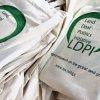Location
The Land Deal Politics Initiative (LDPI) is a network of the research programme of Political Economy of Resources, Environment and Population (PER) of the International Institute of Social Studies in The Hague, Part of Erasmus University Rotterdam.
The aim of LDPI is for a broad framework encompassing the political economy, political ecology and political sociology of land deals.
Our general framework is based on answering 6 key questions:
- Who owns what?
- Who does what?
- Who gets what?
- What do they do with their surplus wealth?
- Ho do social classes and groups in society and within the state interact with each other?
- How do changes in politics get shaped by dynamic ecologies and vice versa?
First steps will involve data-gathering through literature reviews, followed by research into more targeted national contexts. This will help us understand a broader set of 'so what' questions.
Members:
Resources
Displaying 26 - 27 of 27Household Livelihoods and Increasing Foreign Investment Pressure in Ethiopia’s Natural Forests
Foreign investment in Ethiopia’s forestry sector is currently limited, but agricultural investments that affect forests, largely through forest clearing, are commonplace. Describes the nature of forest investments and the challenges of implementing them. New tenure arrangements will have significant implications for communities on the forest-farm interface. Looks at Arsi Forest area, Oromia, to investigate potential for conflict over competing claims.
Land Control, Land Grabs, and Southeast Asian Crop Booms
This paper argues that research into dynamics of land control in the contemporary land grab‘ can benefit from engagement with the literature on booms in the production of crops like cocoa, coffee, fast-growing trees, oil palm, and shrimp in Southeast Asia.



